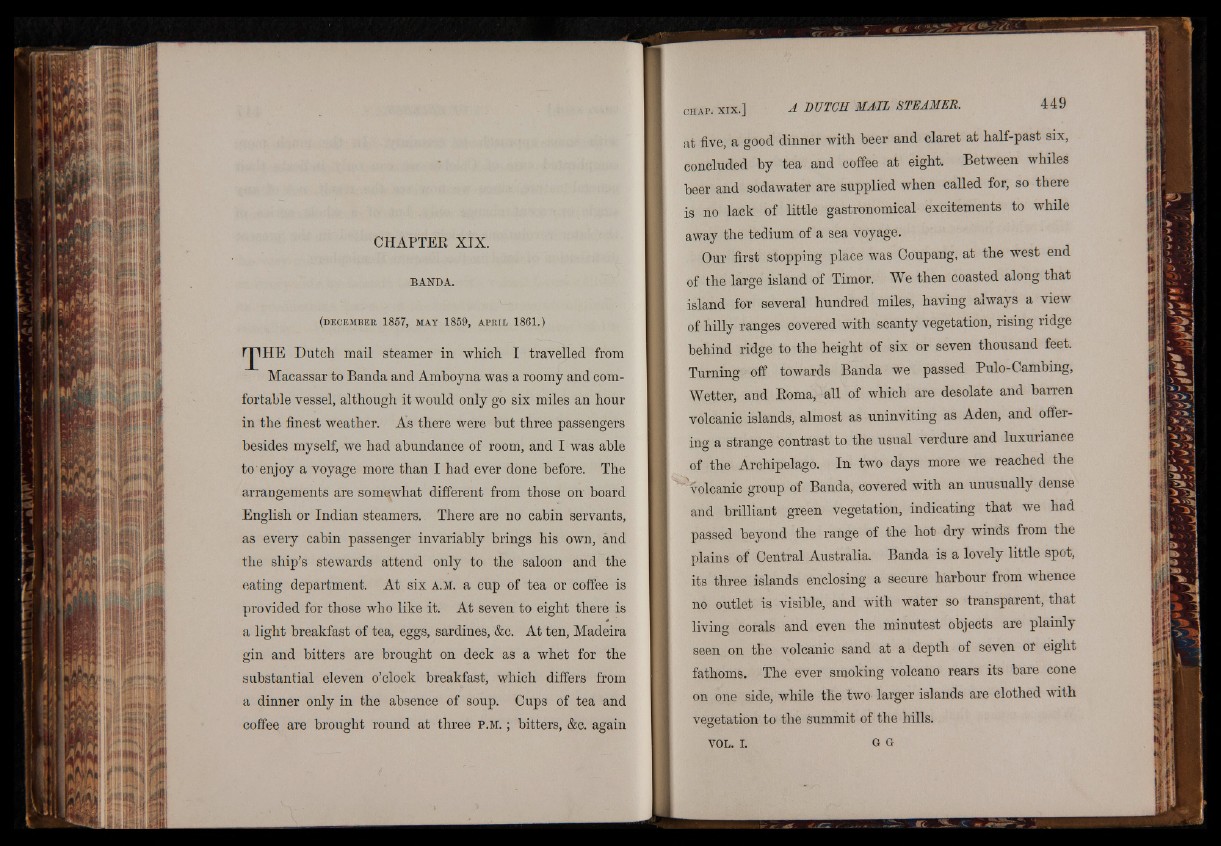
CHAPTER XIX.
BANDA.
(DECEMBER 1857, MAY 1859, A PR IL 1861.)
r jH E Dutch mail steamer in which I travelled from
Macassar to Banda and Amboyna was a roomy and comfortable
vessel, although it would only go six miles an hour
in the finest weather. As there were but three passengers
besides myself, we had abundance of room, and I was able
to enjoy a voyage more than I had ever done before. The
arrangements are somewhat different from those on board
English or Indian steamers. There are no cabin servants,
as every cabin passenger invariably brings his own, and
the ship’s stewards attend only to the saloon and the
eating department. At six A.M. a cup of tea or coffee is
provided for those who like it. At seven to eight there is
a light breakfast of tea, eggs, sardines, &c. At ten, Madeira
gin and hitters are brought on deck as a whet for the
substantial eleven o’clock breakfast, which differs from
a dinner only in the absence of soup. Cups of tea and
coffee are brought round at three P .M .; bitters, &c. again
at five, a good dinner with beer and claret at half-past six,
concluded by tea and coffee at eight. Between whiles
beer and sodawater are supplied when called for, so there
is no lack of little gastronomical excitements to while
away the tedium of a sea voyage.
Our first stopping place was Coupang, at the west end
of the large island of Timor. We then coasted along that
island for several hundred miles, having always a view
of hilly ranges covered with scanty vegetation, rising ridge
behind ridge to the height of six or seven thousand feet.
Turning off towards Banda we passed Pulo-Cambing,
Wetter, and Roma, all of which are desolate and barren
volcanic islands, almost as uninviting as Aden, and offering
a strange contrast to the usual verdure and luxuriance
of the Archipelago. In two days more we reached the
volcanic group of Banda, covered with an unusually dense
and brilliant green vegetation, indicating that we had
passed beyond the range of the hot dry winds from the
plains of Central Australia. Banda is a lovely little spot,
its three islands enclosing a secure harbour from whence
no outlet is visible, and with water so transparent, that
living corals and even the minutest objects are plainly
seen on the volcanic sand at a depth of seven of eight
fathoms. The ever smoking volcano rears its bare cone
on one side, while the two larger islands are clothed with
vegetation to the summit of the hills.